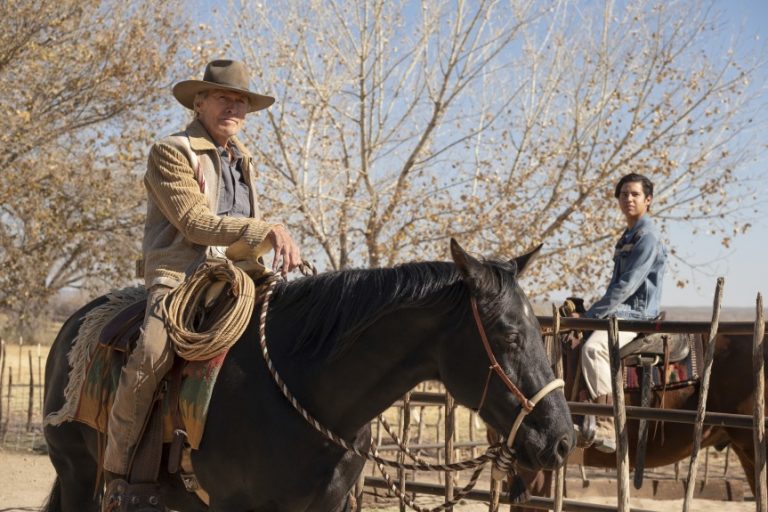
@Corutesy of Warner Brothers
Clint Eastwood’s latest cinematic oeuvre, Cry Macho, is now out in North American theatres, and will be the Opening film of the 34th Tokyo International Film Festival on October 30h.
This motion picture, that Clint Eastwood directs, stars and produces, marks 50 years of his career as a filmmaker, and ventures into new territory. The Neo-Western drama, continues the director’s plight to present human stories about courage, hope, friendship and love.
Cry Macho, based on the 1975 eponymous novel by N. Richard Nash, follows a former rodeo star Mike (Clint Eastwood) who is hired to reunite a 13 year old Rafo (Eduardo Minett), in Mexico with his father, Howard Polk (Dwight Yoakam) in the United States. Mike has been given the task to take the youngster away from his alcoholic mother, Leta (Fernanda Urrejola), but the big shot Texas rancher has also pecuniary interests in reuniting with his son.
Raf is caught in a crossfire between his dysfunctional parents, as he is striving to find worthy raw models to look up to, as he is turning into a man. He is struggling to be up to the standards of the environment he has grown up in, where Latino virility is of utmost importance for the male gender. For instance, even his pet prized fighting rooster has been named with the epitome of Rafo’s aspiration: Macho.
The New York Times wittingly renamed the film The Good, the Bad and the Poultry, since with the noble bird — who gives the film its title and its theme — Mike and Rafo embark upon their drive from Mexico to Texas. Along the way, the two share stories about their lives, the idea of masculinity and they will have a delicate encounter with Marta (Natalia Traven) and her granddaughters.
The story is set in the Eighties, that allows to fully engage with the spirit of the road trip adventure, and the interpersonal relationships that flourish without the use of technological devices or platforms. The on-the-road metaphor never grows weary, as Clint Eastwood gracefully depicts the mutual spiritual growth of the two protagonists from different generations.
 On their journey, the horseman finds redemption by teaching the boy what it means to be a good man. He fills the role of father figure and, in parallel, Marta provides him with a positive mothering example. The storyline does not present any innovative twist, but at the end of the day life itself is cyclical. As the Latin expression says “Nihil sub sole novum” (Nothing new under the sun), for millennia the same situations and the same facts have been repeated. Nothing is really new; especially when it comes to the vanity of human affairs.
On their journey, the horseman finds redemption by teaching the boy what it means to be a good man. He fills the role of father figure and, in parallel, Marta provides him with a positive mothering example. The storyline does not present any innovative twist, but at the end of the day life itself is cyclical. As the Latin expression says “Nihil sub sole novum” (Nothing new under the sun), for millennia the same situations and the same facts have been repeated. Nothing is really new; especially when it comes to the vanity of human affairs.
The slow paces provides a cathartic return to a less fast-paced existence that characterises the 20th century, and plunges audiences into a dimension that allows to revalue small gestures and moments. The cast is brilliant for the subdued performances: “less is more” becomes the winning tool to draw spectators into the essence of the story. An exchange of glances or a sharp joke not to get overwhelmed by emotions are the efficacious details that go straight to the heart when watching this film.
Final Grade: B+

